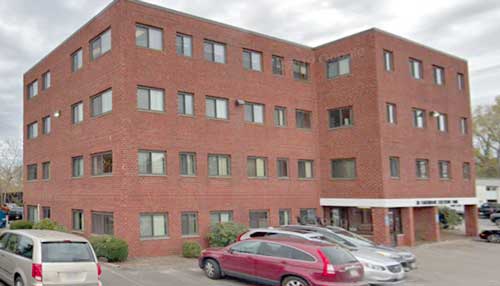NO CHARGE FOR YOUR INITIAL CONSULTATION
ATTORNEY CLIENT PRIVILEGE protects your conversation, so you can be open and honest with Attorneys Savitz & Bradley whatever the charge or charges. We are genuinely committed to protecting your rights and will always act in your best interest.
What is the difference between District Court and Superior Court?
Understanding the distinction between District Court and Superior Court is essential for anyone navigating the Massachusetts legal system. These courts have different jurisdictions, handle different types of cases, and play distinct roles in the legal process. Here’s a comprehensive guide to help you understand how each court functions and what you can expect if your case is handled in either of these courts.
District Court: The First Stop in the Legal Process
District Court in Massachusetts is often the initial venue for a wide variety of cases, both criminal and civil. Here’s what you need to know about District Court:
- Types of Cases Handled: District Court handles misdemeanors, felonies punishable by up to 2.5 years in the House of Correction, civil cases with claims up to $25,000, small claims, and traffic violations.
- Initial Proceedings: For criminal cases, District Court is where initial hearings and arraignments take place. During an arraignment, the charges are formally read to the defendant, and they have the opportunity to enter a plea. Preliminary hearings, bail determinations, and other pre-trial matters are also addressed in District Court.
- Jurisdiction: The District Court’s jurisdiction is more limited compared to Superior Court, focusing on less severe criminal offenses and smaller civil claims. This court handles simpler and more straightforward cases, often resulting in shorter, less formal trials.
- Outcome and Sentencing: If a case remains in District Court, the potential penalties are generally less severe. For criminal cases, this could mean a sentence in the House of Correction rather than state prison.
Superior Court: Handling Serious Offenses and Complex Civil Cases
Superior Court deals with more serious criminal and civil matters, requiring more comprehensive judicial proceedings. Here’s what sets Superior Court apart:
- Types of Cases Handled: Superior Court handles serious felonies that carry potential state prison sentences, civil cases involving claims over $25,000, and cases that require equitable relief, such as injunctions.
- Jurisdiction: The Superior Court has broader jurisdiction, enabling it to preside over cases that demand more complex legal processes. This court is where cases involving significant criminal charges, such as major felonies, are tried, as well as high-value civil disputes.
- Trial Process: Trials in Superior Court are generally longer and more formal, involving extensive legal procedures, evidence presentation, and more intricate legal arguments. These trials often require the involvement of expert witnesses and detailed legal strategies.
- Grand Jury and Indictments: One key function of the Superior Court is handling cases that have been moved from District Court after a grand jury indictment. The grand jury evaluates whether sufficient evidence exists to charge someone with a serious crime. If an indictment is issued, the case is then transferred to Superior Court for trial.
When Does a Case Move from District Court to Superior Court?
Cases typically start in District Court, especially for initial proceedings like arraignments and bail hearings. However, if the case involves a serious felony that could result in a state prison sentence, the District Attorney may present the case to a grand jury. If the grand jury finds enough evidence to proceed, the case will be moved to Superior Court.
Why Do Some Cases Stay in District Court?
Not all cases escalate to Superior Court. Cases remain in District Court if they involve less serious offenses or if the penalties fall within the jurisdiction of the District Court. For instance, misdemeanors and lesser felonies that are punishable by up to 2.5 years in the House of Correction typically stay in District Court.
Key Differences Between District Court and Superior Court
- Jurisdiction:
- District Court: Handles misdemeanors, less serious felonies, and civil cases up to $25,000.
- Superior Court: Handles serious felonies and civil cases over $25,000.
- Case Complexity:
- District Court: Deals with simpler, less severe cases.
- Superior Court: Handles more complex, severe cases requiring extensive legal proceedings.
- Initial Hearings:
- District Court: All criminal cases start here for initial proceedings.
- Superior Court: Cases move here after a grand jury indictment for more serious matters.
- Trial Length and Procedure:
- District Court: Shorter, less formal trials.
- Superior Court: Longer, more formal trials with comprehensive legal procedures.
Conclusion
Understanding the roles of District Court and Superior Court in Massachusetts can significantly impact how you navigate the legal system. The seriousness of the offense and the complexity of the case typically determine which court will handle your case.
If you have legal questions or need representation, contact The Law Offices of Elliot Savitz & Scott Bradley at (781) 974-3429 for a FREE CONFIDENTIAL LEGAL CONSULTATION. Our experienced attorneys are here to help you through every step of the legal process.




